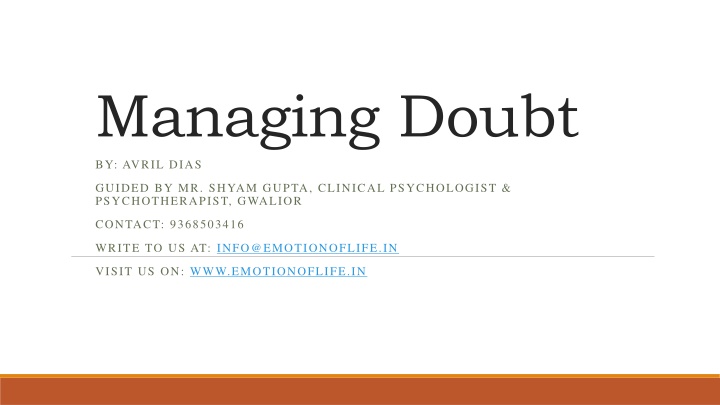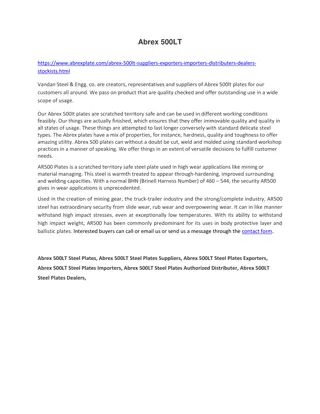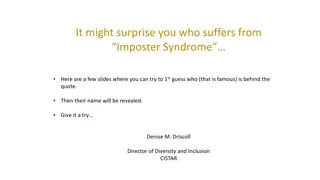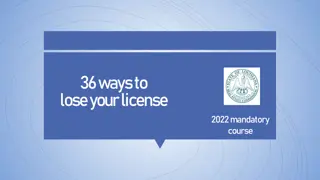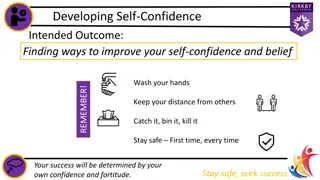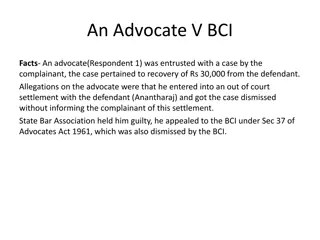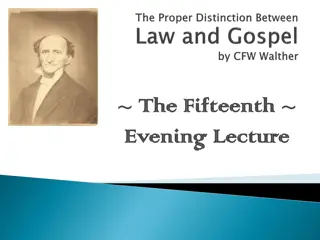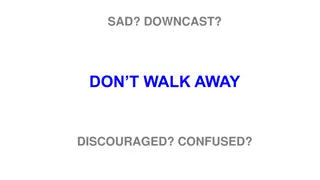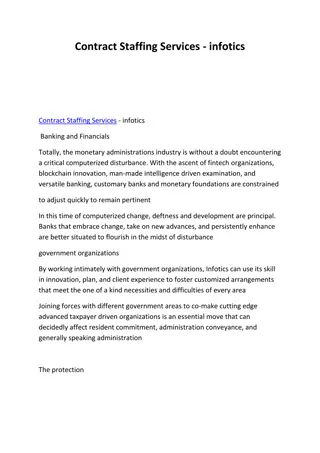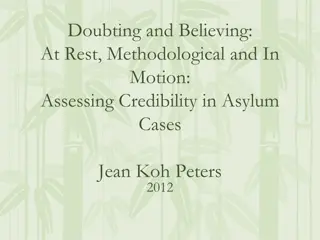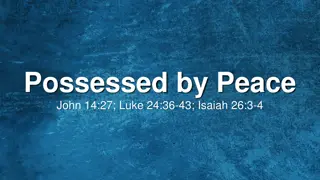Managing Doubt
Doubt is a common human experience that can lead to distress and anxiety. Learn about the types of doubt, including healthy and unhealthy doubt, and discover recommended activities to overcome doubt and build self-confidence and resilience.
Download Presentation

Please find below an Image/Link to download the presentation.
The content on the website is provided AS IS for your information and personal use only. It may not be sold, licensed, or shared on other websites without obtaining consent from the author.If you encounter any issues during the download, it is possible that the publisher has removed the file from their server.
You are allowed to download the files provided on this website for personal or commercial use, subject to the condition that they are used lawfully. All files are the property of their respective owners.
The content on the website is provided AS IS for your information and personal use only. It may not be sold, licensed, or shared on other websites without obtaining consent from the author.
E N D
Presentation Transcript
Managing Doubt BY: AVRIL DIAS GUIDED BY MR. SHYAM GUPTA, CLINICAL PSYCHOLOGIST & PSYCHOTHERAPIST, GWALIOR CONTACT: 9368503416 WRITE TO US AT: INFO@EMOTIONOFLIFE.IN VISIT US ON: WWW.EMOTIONOFLIFE.IN
What is doubt? Doubt is a feeling of uncertainty or lack of conviction . If you have doubt or doubts about something, you feel uncertain about it and do not know whether it is true or possible. Doubt = being unsure or uncertain. It may often cause distress, tense feelings and in higher amounts, anxiety and anxiety related concerns.
Why does doubt occur? As humans we do not hold the key to all knowledge. This brings up questions and thus doubt. Not knowing is a part of being human, so doubting is human too. However when a person begins to doubt several things and wants to be sure about uncertain situations, then doubt may cause discomfort and distress. What if, when, will it, did it are all the beginning words of a doubt and when we notice these words increase in our vocabulary, it causes feelings of worry and discomfort.
Types of doubt Healthy doubt Having a little bit of self doubt or doubt in general helps us from acting upon ideas that may put us at risk. It is a mechanism that keeps us safe and helps us make the right decision. Questioning and doubt also helps us constantly improve and work on ourselves. Unhealthy doubt Doubting every person, situation and always thinking that something may go wrong increases anxiety and perpetuates doubt. Constantly feeling that one has to review situations so that nothing bad may happen. When the doubt takes up a lot of time and the person finds it hard to let go of uncertainty, doubting becomes unhealthy.
Self-doubt Self- doubt is experiencing feelings of uncertainty about one or more aspects of yourself . Healthy self- doubt will motivate you to do better and improve yourself. It keeps you grounded and humble. Unhealthy self doubt can lead to anxiety and distress and may in turn hamper progress.
External doubt External doubt is the questioning of things that happen outside of one s own body. That is: questioning the outcome of situations outside of one s control. Eg: What will others think? Will something bad happen if I do this?
Recommended activities to overcome doubt Learn to take risks Practice self compassion Remember and be happy of past achievements Try not to compare yourself to others Be mindful in your thinking Take every situation as a form of learning Failure only makes you stronger, allow yourself to make mistakes and learn from them Spend time with supportive people Ask and accept constructive suggestions from people you trust
Recommended activities to overcome doubt Engage yourself in activities that you love like dancing, singing, cooking, sports, art, etc. Keep yourself occupied Engage in social work and help people around you whenever you can
Be comfortable being uncomfortable. Doubt is only a thought and feeling, nothing to resist.
